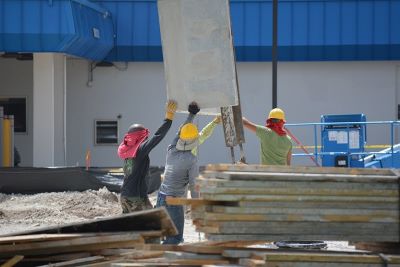Getting injured while working can be challenging, but the complexity increases when the injury occurs off-site. Many professionals work in environments beyond their primary workplace—construction sites, client offices, or even public spaces. Understanding your rights and the steps to take in these situations is crucial.
The Scope of Workplace Injuries
Workplace injuries encompass any harm sustained while performing job-related duties. These injuries are not restricted to the confines of an office or facility. For example, delivery drivers face road hazards, consultants often visit client locations, and remote employees may travel for work-related events.
In such scenarios, the key question becomes: does the activity align with your job responsibilities? If the answer is yes, you may qualify for compensation, even if the injury occurs far from your primary workplace. Knowing this distinction is vital for pursuing your claims effectively.
Workers’ Compensation and Off-Site Injuries
Workers’ compensation serves as a safety net for employees injured on the job. It typically covers medical expenses, rehabilitation costs, and lost wages. However, the eligibility criteria for off-site injuries may vary depending on the nature of the job and the circumstances of the injury.
For instance, attending a mandatory training session or running a work-related errand usually qualifies as job-related activity. On the other hand, injuries sustained during personal errands or breaks may not. To secure benefits, employees must prove the direct connection between their job duties and the incident.
Common Scenarios for Off-Site Injuries
Several situations often lead to off-site injuries. Understanding these can help you determine if your case qualifies for compensation:
Business Travel Accidents
Employees frequently travel for conferences, meetings, or training. If an injury occurs during these trips, it is generally considered work-related. However, injuries sustained during personal activities unrelated to work may not qualify.
Client Site Incidents
Many professionals, such as consultants or technicians, perform duties at client locations. Slips, falls, or equipment-related accidents at these sites are common and usually qualify for workers’ compensation.
Delivery and Transportation Jobs
Delivery drivers, couriers, and transport workers are often on the road. Vehicle collisions, loading accidents, or falls during deliveries are typically covered by workers’ compensation, provided they occur while performing job-related tasks.
Remote Work Hazards
As remote work grows, so does the complexity of determining job-related injuries. For instance, if a remote employee sustains an injury while setting up a home office or attending a virtual meeting, they may be eligible for compensation, depending on the circumstances.
Legal Challenges and Employer Responsibilities
Employers have a duty to maintain a safe work environment, which extends to off-site locations. This includes ensuring that job assignments do not place employees at unreasonable risk. However, disputes can arise regarding liability and coverage for off-site injuries.
Insurance providers and employers may argue that the injury was not work-related to avoid paying compensation. As explained by experts from Curcio & Casciato, working with personal injury attorneys can significantly strengthen your claim in such cases. Their expertise ensures you navigate complex legal processes and secure the benefits you deserve.
Steps to Take After an Off-Site Injury
Acting promptly and correctly after an injury is critical for your case. Here’s what you should do:
Report the Incident
Notify your employer about the injury immediately. Provide detailed information, including the location, time, and circumstances. Delays in reporting can weaken your claim.
Seek Medical Attention
Obtain medical treatment as soon as possible, even if the injury seems minor. Ensure the medical records explicitly link the injury to your work-related activity.
Document Evidence
Gather evidence from the scene, such as photographs, witness statements, and incident reports. This information can prove invaluable when filing a claim.
Consult Legal Experts
Navigating off-site injury claims can be overwhelming. Consulting a lawyer experienced in workplace injuries ensures you understand your rights and the best course of action.
Workers’ Compensation Differs and Personal Injury Claims
While workers’ compensation provides benefits without requiring proof of employer negligence, it limits the types of damages you can recover. For example, pain and suffering are not covered under workers’ compensation.
In contrast, a personal injury claim allows you to pursue additional damages if a third party—such as a negligent property owner or driver—was responsible for your injury. Understanding these differences is crucial for maximizing your compensation.
When Third-Party Liability Applies
Some off-site injuries involve third-party negligence, making personal injury claims a viable option. For instance:
- A delivery driver injured by another motorist can file a personal injury lawsuit.
- A technician harmed by defective equipment at a client site may pursue claims against the equipment manufacturer.
- An employee injured at a rented conference venue due to unsafe conditions can hold the property owner accountable.
In such cases, workers’ compensation and personal injury claims can coexist, offering a more comprehensive route to recovery.
Avoiding Off-Site Workplace Injuries
Prevention is always better than cure. Both employers and employees can take steps to minimize risks:
Employers
Conduct safety assessments for off-site locations. Provide proper training and equipment. Establish clear protocols for reporting and addressing hazards.
Employees
Stay alert and follow safety guidelines. Use protective gear as needed. Communicate potential risks to your employer.
Creating a culture of safety benefits everyone and reduces the likelihood of off-site injuries.
Understanding your rights is essential for ensuring fair treatment. Off-site injuries can be particularly challenging to navigate due to the blurred lines between work-related and personal activities. Staying informed and seeking professional guidance can make a significant difference in the outcome of your claim.


